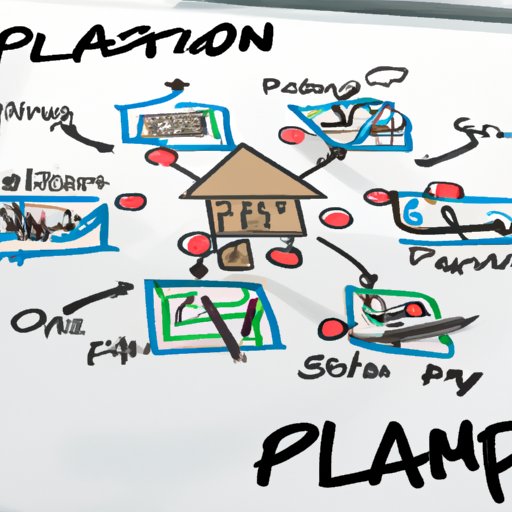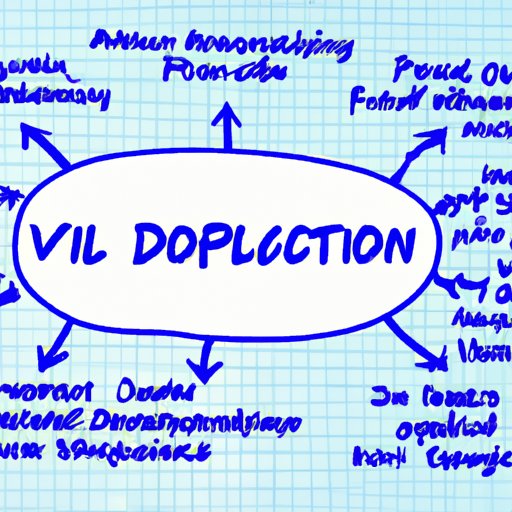Introduction
Group homes provide adults with disabilities a safe and supportive environment where they can receive specialized care. These residential facilities are designed to meet the needs of members of the community who may require assistance with daily tasks, such as grooming, cooking, or medication management. Group homes can also offer a variety of educational and recreational activities to foster independence and promote socialization.
Overview of the Need for Group Homes for Adults with Disabilities
According to the U.S. Census Bureau, more than 25 million Americans have some form of disability. Of those, over 6 million are adults aged 18 and over. Adults with disabilities often face unique challenges that make independent living difficult. Group homes can help provide these individuals with the support and resources they need to live safely and comfortably.
Research has shown that group homes can be beneficial for adults with disabilities. One study found that individuals who lived in group homes had higher levels of autonomy, self-esteem, and social integration than those who lived in other long-term care settings. Additionally, research suggests that living in a group home setting can reduce risk factors associated with depression, anxiety, and other mental health issues.
Purpose of the Article
This article is intended to provide guidance on how to start a group home for adults with disabilities. It outlines the necessary steps to establish a successful group home, including defining the target population, understanding legal requirements, researching funding sources, developing an operational plan, and creating a staffing plan.
Outline the Goals and Objectives of Starting a Group Home
The first step to establishing a group home is to outline the goals and objectives. This should include defining the target population, identifying the services that will be offered, understanding the legal requirements, and determining the budget and resources needed.
Establishing the Target Population
When starting a group home, it is important to define the target population. This should include the age range, gender, diagnosis, and any other relevant characteristics of the individuals who will be served. Defining the target population will help inform the services that will be offered and the type of staff that will be needed.
Identifying the Necessary Services
Once the target population has been established, it is important to identify the services that will be offered. This could include medical care, counseling, education, job training, and recreational activities. It is also important to consider any special accommodations that may be needed for individuals with physical or developmental disabilities.
Understanding the Legal Requirements
Before starting a group home, it is important to understand the legal requirements. This includes researching applicable state and local laws and regulations, as well as any licensing requirements. It is also important to review existing policies and procedures related to the operation of the facility.
Defining the Budget and Resources
It is also important to define the budget and resources needed to operate the group home. This should include the cost of personnel, supplies, and other operational expenses. It is also important to consider any capital investments that may be necessary, such as equipment or renovations.
Research State and Local Laws and Regulations for Establishing a Group Home
Before starting a group home, it is important to research state and local laws and regulations. This includes identifying any licensing requirements and any specialized accreditation processes that may be needed. It is also important to review existing state and local regulations related to the operation of group homes.
Identify Local Licensing Requirements
Different states and localities have different licensing requirements for group homes. It is important to research these requirements to ensure that the facility meets all necessary standards. Depending on the state, this could include fire safety, building code, and health and safety regulations.
Understand Any Specialized Accreditation Processes
In some cases, group homes may need to obtain specialized accreditation in order to operate. This could include accreditation from the Joint Commission or another organization that sets standards for quality care. It is important to research these requirements to ensure that the facility meets all necessary standards.
Review Existing State and Local Regulations
It is also important to review existing state and local regulations related to the operation of group homes. These regulations could include requirements for staff qualifications, resident rights, and other aspects of the facility’s operations. Understanding these regulations is essential for ensuring compliance.

Identify Potential Funding Sources for Starting a Group Home
Starting a group home can be expensive, so it is important to identify potential funding sources. This could include federal, state, and local funding programs, as well as grants, donations, and other sources of funding.
Determine Eligibility for Federal Funding Programs
There are several federal funding programs available to assist with the costs of starting a group home. It is important to research these programs to determine eligibility and understand any application requirements. Examples of federal funding programs include Medicaid, Social Security Disability Insurance, and Supplemental Security Income.
Explore Options for State and Local Funding
In addition to federal funding programs, there may also be options for state and local funding. This could include grants, loans, or other forms of financial assistance. It is important to research these options to determine eligibility and understand any application requirements.
Consider Grants, Donations, and Other Sources
Grants and donations can also be a valuable source of funding for starting a group home. There are many organizations that provide grants specifically for group homes, as well as other organizations that may provide general grants for non-profit organizations. Additionally, businesses and individuals may be willing to donate money or supplies to the facility.

Develop an Operational Plan for the Group Home
Once the necessary funding has been secured, it is important to develop an operational plan for the group home. This should include creating a comprehensive business plan, outlining the policies and procedures, and designing a curriculum for the residents.
Create a Comprehensive Business Plan
Creating a comprehensive business plan is essential to the success of a group home. This should include a detailed description of the services that will be offered, the mission and vision of the facility, and the strategies for achieving the goals. Additionally, the plan should include a financial analysis to ensure that the facility is financially viable.
Outline the Policies and Procedures
It is also important to outline the policies and procedures for the group home. This should include rules for staff and residents, as well as guidelines for handling emergencies. The policies should be clearly communicated to staff and residents to ensure that everyone understands their responsibilities.
Design a Curriculum for the Residents
Finally, it is important to design a curriculum for the residents of the group home. This should include educational activities, job training, and recreational activities. The curriculum should be tailored to the individual needs of the residents and should focus on fostering independence and promoting socialization.

Create a Staffing Plan for the Group Home
The next step to starting a group home is to create a staffing plan. This should include assessing the skill sets required, identifying qualified candidates, and designing a compensation structure.
Assess the Skill Sets Required
It is important to assess the skill sets required for the staff of the group home. This should include qualifications for direct care staff, nurses, therapists, and administrative staff. It is also important to consider any specialized skills that may be needed, such as experience working with individuals with disabilities.
Identify Qualified Candidates
Once the skill sets have been identified, it is important to identify qualified candidates. This could include posting job listings online, attending job fairs, or reaching out to local schools or organizations. It is also important to conduct thorough background checks on all potential employees.
Design a Compensation Structure
Finally, it is important to design a compensation structure for the staff of the group home. This should include salaries, benefits, bonuses, and other forms of compensation. It is also important to consider any collective bargaining agreements that may apply to the staff.
Conclusion
Starting a group home for adults with disabilities is a complex process, but it can be rewarding and fulfilling. By outlining the goals and objectives, researching state and local laws and regulations, identifying potential funding sources, developing an operational plan, and creating a staffing plan, group home operators can ensure that their facility is safe, successful, and compliant with all applicable laws and regulations.
Summary of the Steps to Starting a Group Home
To sum up, the steps to starting a group home for adults with disabilities include: outlining the goals and objectives; researching state and local laws and regulations; identifying potential funding sources; developing an operational plan; and creating a staffing plan.
Final Thoughts on Creating a Successful Group Home Environment
Creating a successful group home environment requires dedication and commitment. It is essential to ensure that all legal requirements are met and that the facility is properly staffed and equipped to meet the needs of its residents. With the right planning and preparation, group homes can provide a safe and supportive environment for adults with disabilities.
(Note: Is this article not meeting your expectations? Do you have knowledge or insights to share? Unlock new opportunities and expand your reach by joining our authors team. Click Registration to join us and share your expertise with our readers.)
